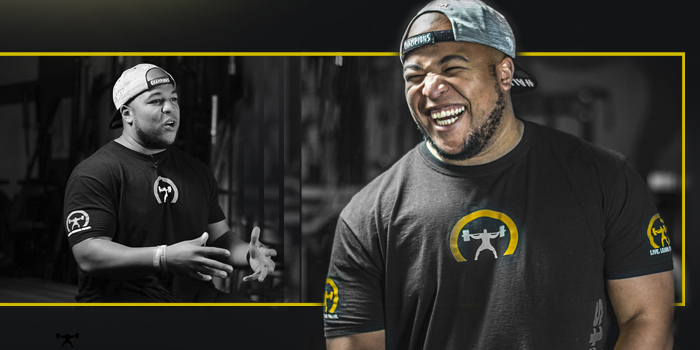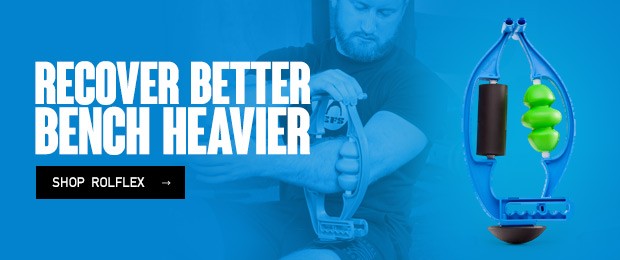
We all know how crazy in-season training can be. There are games that you have to work around, bye weeks (or MACtion), practice schedules, class schedules, and of course injuries and fatigue. This can be extremely difficult if you’re short-staffed or if you have limited resources. Though most will say in-season training is the easy part, I think it is challenging due to all these variables. This is where the relationships you have built with your athletes really come into play. If the team isn’t bought-in to you then you’re going to have a very brutal season. I learned a long time ago that the biggest trick to in-season training is being able to adapt and modify your program. You also need great trust and communication with your athletes. Another key piece of this whole puzzle is buy-in. Let me explain.
RECENT: Moving Tips for Strength Coaches
First and foremost, during my in-season training we did not “just maintain.” To me, you are either getting better or you are getting worse. So while others are getting worse in the weight room, I wanted to get better. That is not a knock on anyone’s style — that is simply the mindset I had going in. We trained as low as 70% sometimes, but we also hit 90% twice during the season. We hit 90% for three singles on week six and week 12 of the season. This article isn’t about what we did, though. What we did was lift heavy in-season, and that’s easy. Why were we able to, though? That's what this article is about, and it was because my athletes trusted me, I trusted them, and they bought in to what we were doing. With that trust came great communication, which helped tremendously with any modifications based on how guys felt.
Why did we have great trust? My guys knew I was there for them and I had their backs. During camp, I took care of my guys. I kept the volume on the low end of moderate and the intensity went up to 75% or 80%. We hit some accessory movements paired with our priorities and got out. It wasn’t rocket science. I also had “recovery days.” I believe these days were the most important days early on. Why? Because these days I was able to have a lot of conversations about training and how camp was going. I didn’t judge. I listened and gave advice. I’d be rolling someone out and we would talk about football and more often than not that led to talks about life. If they had questions about my program or what my plans were, I was able to explain it to them, walk them through my reasons, and educate them on why I planned on doing what I was doing. I didn’t try to push them away.

I was also able to build relationships with players I didn’t get to see as much due to the fact I had always been the “line guy." I was able to sit down with our quarterback or our wide receiver and get to know them. I also loved meals during camp for the same reason. Being able to sit down with guys and show them that you are in fact a normal human helps build trust and relationships. I was able to learn who and what I could trust during those times. I learned that maybe I couldn’t trust a certain athlete to be on time, but I could trust that he would take his punishment like a man. Or that I could trust one athlete to work hard while another athlete I'd have to stay on just a tad bit extra.
Now, thankfully since I had been the “line guy” since the time I arrived at that school, when I took over I already had the buy-in and trust with my line guys. But our communication changed since they knew I had direct power over the program. It became a more tactical but open line of communication. For example, two of the captains were lineman (one defensive line and one offensive line). They knew that if there were unit or team concerns they were the representatives that should come to me, and they were comfortable enough to talk to me. They were also mature enough to know how to speak to me as their head strength coach and what concerns they should address with me. I didn’t shut them down or close them off because I believed these were valuable lessons they needed to learn.
When you’re a top assistant you have to be able to listen to the voices of the other assistants and know how or what to communicate with the head strength coach. Even in a normal workplace you have to learn how and when to talk to your superior. And as the superior, you need to know when the opinions or complaints are worth noting and how to alleviate any concern in a justifiable way. In the end, it was a great learning and teaching experience for both parties. Building up the relationships with my players not only allowed them to trust me but also allowed me to know where their heads were at so I could trust them and treat them as adults. Open lines of communication with the captains allowed for smooth problem-solving. They understood why I did what I did and I understood how they felt about what I was doing — which would later come into play.
As I stated earlier, we lifted heavy. I don’t know if you’ve ever been through a 12 game season, but it takes a serious pounding on your body and your mind. In order to play a physical game then come back and squat 90% for three singles in-season, you have to be bought-in to the head strength coach. Luckily I had that buy-in from my players. They knew that they were going 90%, but they knew why and they believed in the “why,” largely due to the fact they trusted me from the conversations we previously had. And they saw the results. A large number of my guys got stronger in-season, which was due to the buy-in. A vast majority of them actually pushed their prescribed weights because they were bought-in to what was being done. In-season training some weeks looked a lot like off-season training based on the attitude of the players and the weights they pushed.
Now, I talked about being able to make adaptations to my program. I would modify guys based on necessity and I gave all my assistants the ability to modify their guys in the same way as they saw fit. For example, my big skill coach would modify certain linebackers that played a lot of games, from box squat to leg press maybe for a week after he had gotten a ton of minutes in a very tough game. This is where we as a staff had to reciprocate the trust that was placed into us from a player's standpoint. We asked for a lot of trust, especially as I was a first time head strength coach at the age of 26, programming in-season for a football team for the first time. Not only had I only been hired a month prior but I also was asking them to do something many people don’t ask their players to do in-season: get stronger. The guys had taken a leap of faith and trusted me. It was my turn to do the same.
What I mean by that is that if my senior defensive tackle told me his back was jacked up, I trusted him to modify his training to a heavy leg press instead of a squat. If my defensive end’s shoulders were destroyed from all the pounding they took then I trusted him to do a heavy dumbbell bench press because he felt better doing it. Another defensive end felt better going trap bar deadlift over squat so I made the modification, but he still pushed the trap bar deadlift upwards of 550 pounds.
I didn’t modify based on convenience; I modified based on necessity. All these players had justifiable preexisting circumstances or a very tough game that called for modification of the movement. The intensity never changed, though. If you were going to dumbbell bench and that week was an 85% bench week, you were going to dumbbell bench a heavy dumbbell bench. Leg press wasn’t something everyone got to go over and do just because their backs might have been a little tight. And it wasn’t going to be “just put a plate on and do three reps." Modifications also didn't happen to those who had an injury or couldn't be trusted. If there wasn’t trust and the circumstances didn’t make sense, the modification didn’t happen.
MORE: Know Your Audience: Learning More About Your Athletes
That is where communication was so important. I wanted those guys to understand they could talk to me — and I mean talk to me, not sit and complain to me about my squat days being too heavy. Having that open dialogue made things run smoothly even during punishments. Guys knew why they were receiving punishments based on standards that were set. We would openly talk about the standards and what would happen if they were not met, so everything was understood. And if they weren’t understood (which is a lack of communication on either my end or theirs) we would have dialogue about the standards when the time was necessary.
Overall, in-season training went better than expected, but not because I read a book about it or because I had prior experience running my program. This was the first time running my program and my first time being a head guy, so I could have been completely off-base. Not many go into the season expecting to get stronger. The season has always been a time to maintain. It went so well because of the communication, the trust, and the buy-in. I truly believe without all those areas operating at max capacity, the success in the weight room during the season would not have happened. It was a true testament to the willpower and character of the players. And I would be remiss if I didn’t mention my assistants, who truly believed in the program and possessed extraordinary levels of trust in me and what we were doing as a strength staff.
Image credit: ostill © 123RF.com












Love this idea!!!!